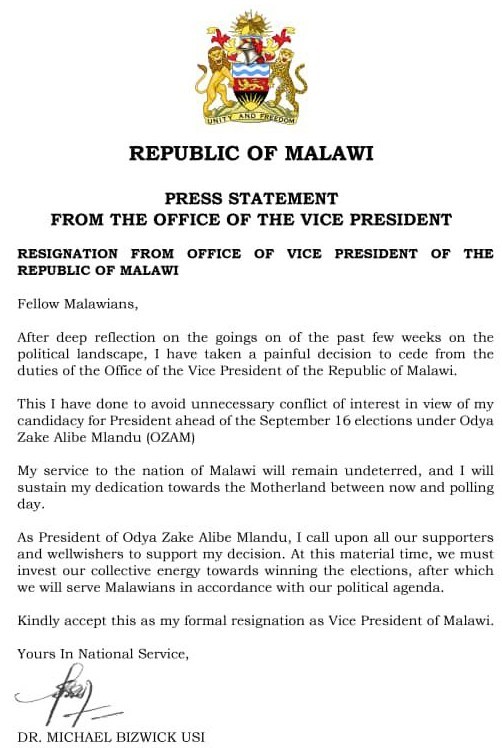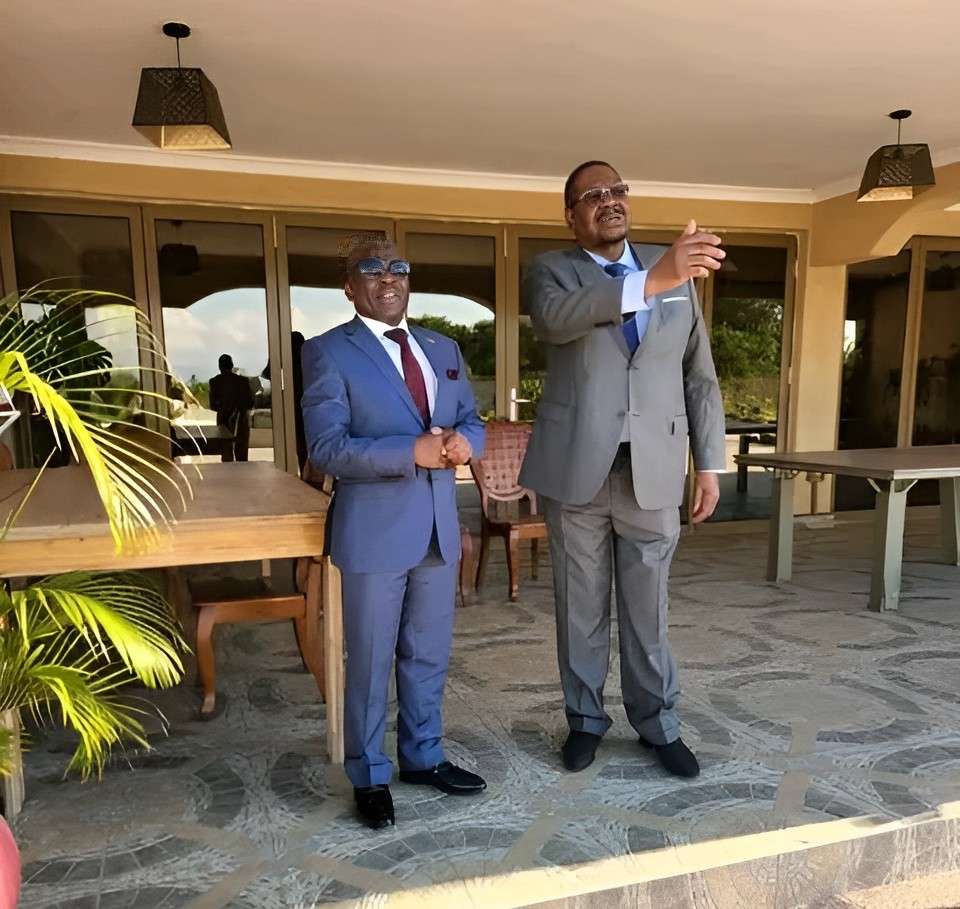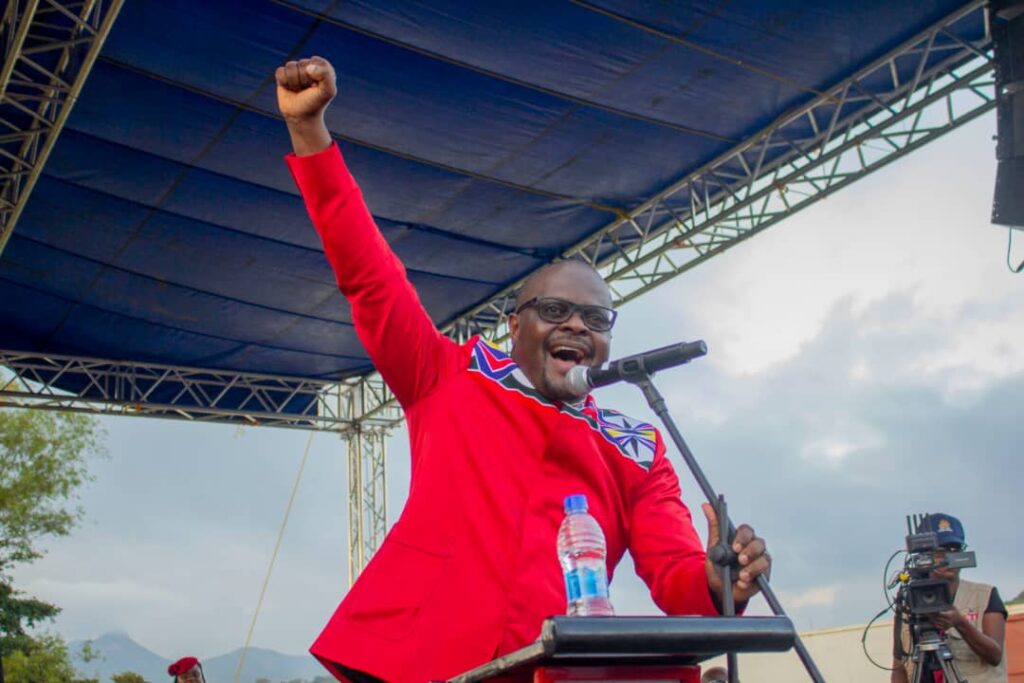Vice President Michael Usi has resigned from his position in a dramatic political turn which many have interpreted as clearing the path for his Odya Zake Alibe Mlandu (OZAM) movement to formalise an electoral alliance with the Democratic Progressive Party (DPP).
In a statement issued Wednesday, Usi said the decision was to avoid a “conflict of interest” as he prepares to run for president under OZAM in the September 16 elections.

His resignation comes just days after secret meetings between OZAM’s leadership and former President Arthur Peter Mutharika at Page House in Mangochi, where the two sides discussed joining forces despite the DPP already settling on Jane Ansah as Mutharika’s running mate.
Political analysts say the move raises questions over what Usi and OZAM stand to gain from a late-stage alliance and whether it is a calculated survival strategy after being sidelined in the Malawi Congress Party.
In a surprising political twist and a show of desperation, Usi secretly met with APM at his Page House in Mangochi to discuss a possible electoral alliance between the fledgling movement and the DPP.

The meeting came just days after OZAM’s National Executive Committee (NEC) had another secret meeting on Monday at the Vice President’s residence in Mudi where they resolved to formally pursue the alliance.
During the meeting, the decision was unanimous among top officials, despite the political oddity of brokering such a deal after the main presidential tickets for the September elections have already been settled.
“This is where the mystery lies. If you’re not on the presidential ticket, then the value of such an alliance is so limited. That points to either a strategic local arrangement or sheer desperation,” said one political analyst in Lilongwe.
Some in political circles believe Usi’s resignation and overtures to Mutharika may be born out of frustration after being sidelined in the Malawi Congress Party (MCP), where he had once harboured hopes of being President Lazarus Chakwera’s running mate. That role has instead gone to Vitumbiko Mumba, current Minister of Trade and Industry.

According to an inside sources close to the Mudi meeting: “The committee was confident this alliance would give OZAM a bigger platform, but there is more beneath the surface than just electoral gains. This is also about political relevance and positioning.”
A senior political commentator cautioned the DPP against embracing the deal too quickly.
“The DPP must be extremely cautious. Aligning with Usi could backfire spectacularly. His allegiance seems driven by personal ambition rather than ideological alignment. If not handled well, this could end up eroding the DPP’s unity rather than strengthening it,” he said.
For OZAM, the party, whose relevance on the political scene remains questionable, hopes an alliance with the DPP could mean leveraging rural grassroots network. For the DPP, a party struggling to campaign due to APM’s old age and ill health, hopes that bringing Usi on board could provide a charismatic face in southern and eastern districts where Usi believes has strong personal appeal.
However, analysts point out that with the campaign period already underway and ballot papers due for printing in a matter of weeks, any alliance at this stage is unlikely to alter the presidential race. Probably, it could be a calculated step towards positioning for post-election negotiations or influence in the next parliament.
The Usi–Mutharika meeting at Page House adds yet another twist to an already unpredictable election season. Whether it represents a masterstroke of strategic positioning or a last-minute grasp for relevance remains to be seen.
As one Mangochi-based political operative put it: “This is either the start of something big or the political equivalent of shaking hands at the finish line.”








